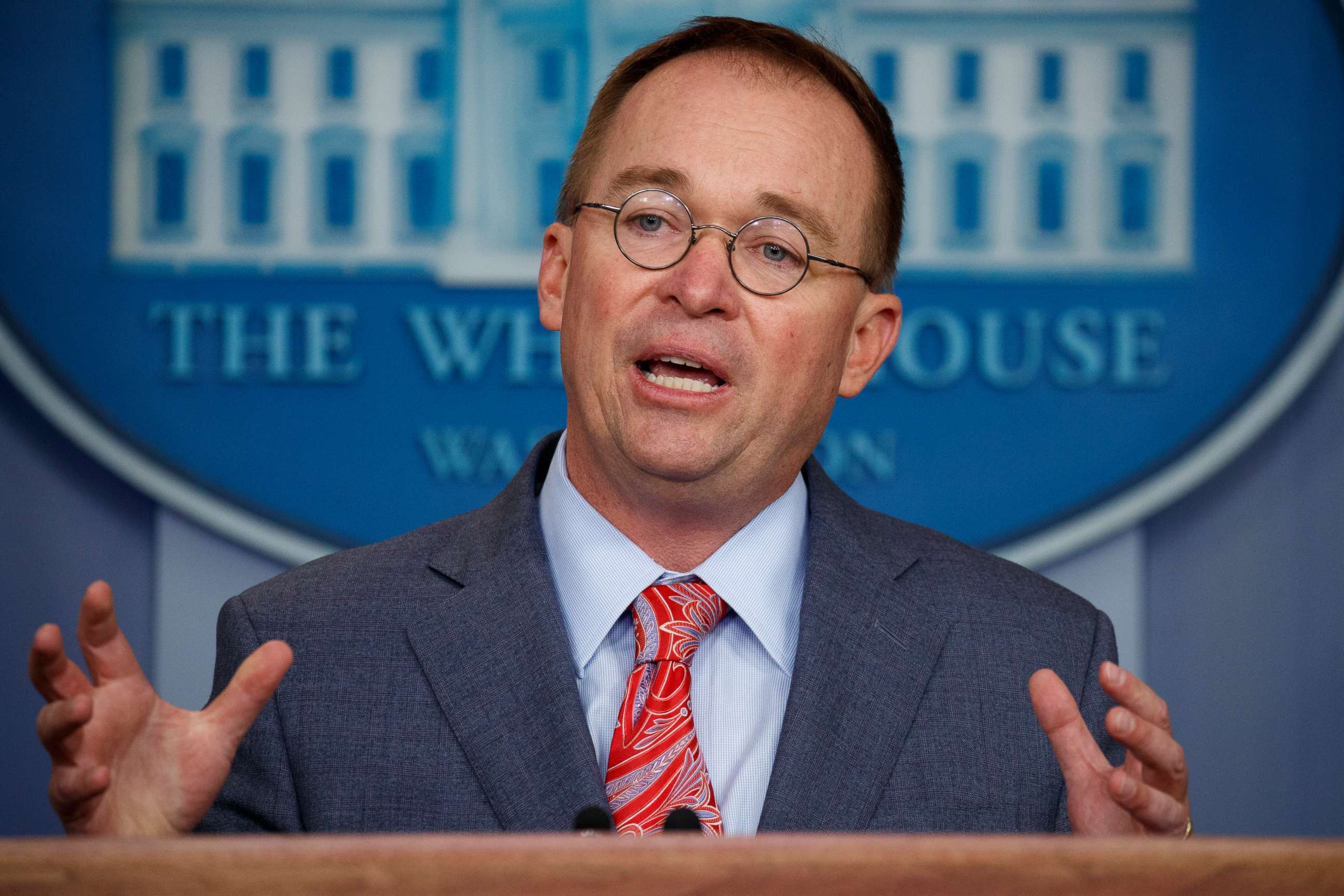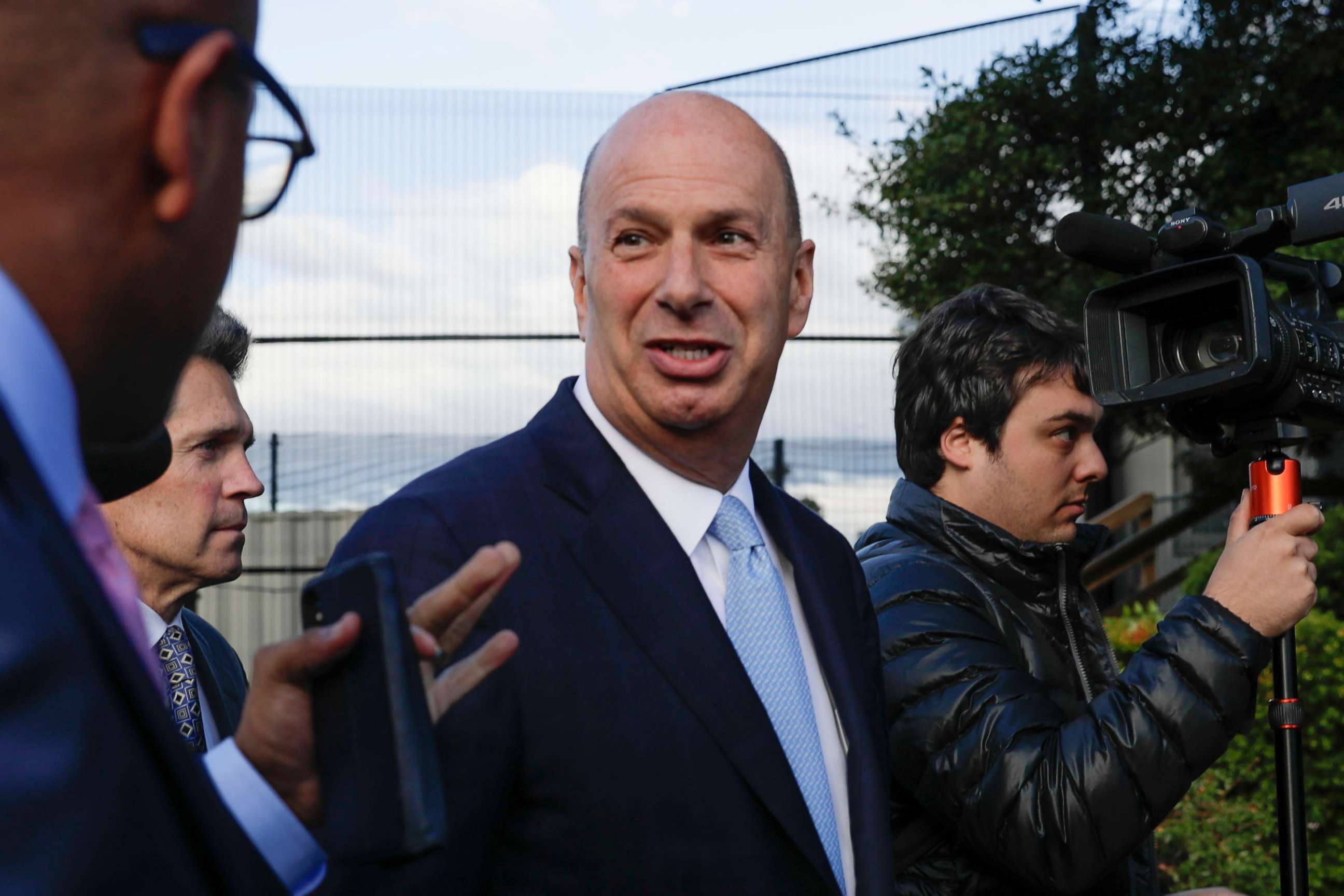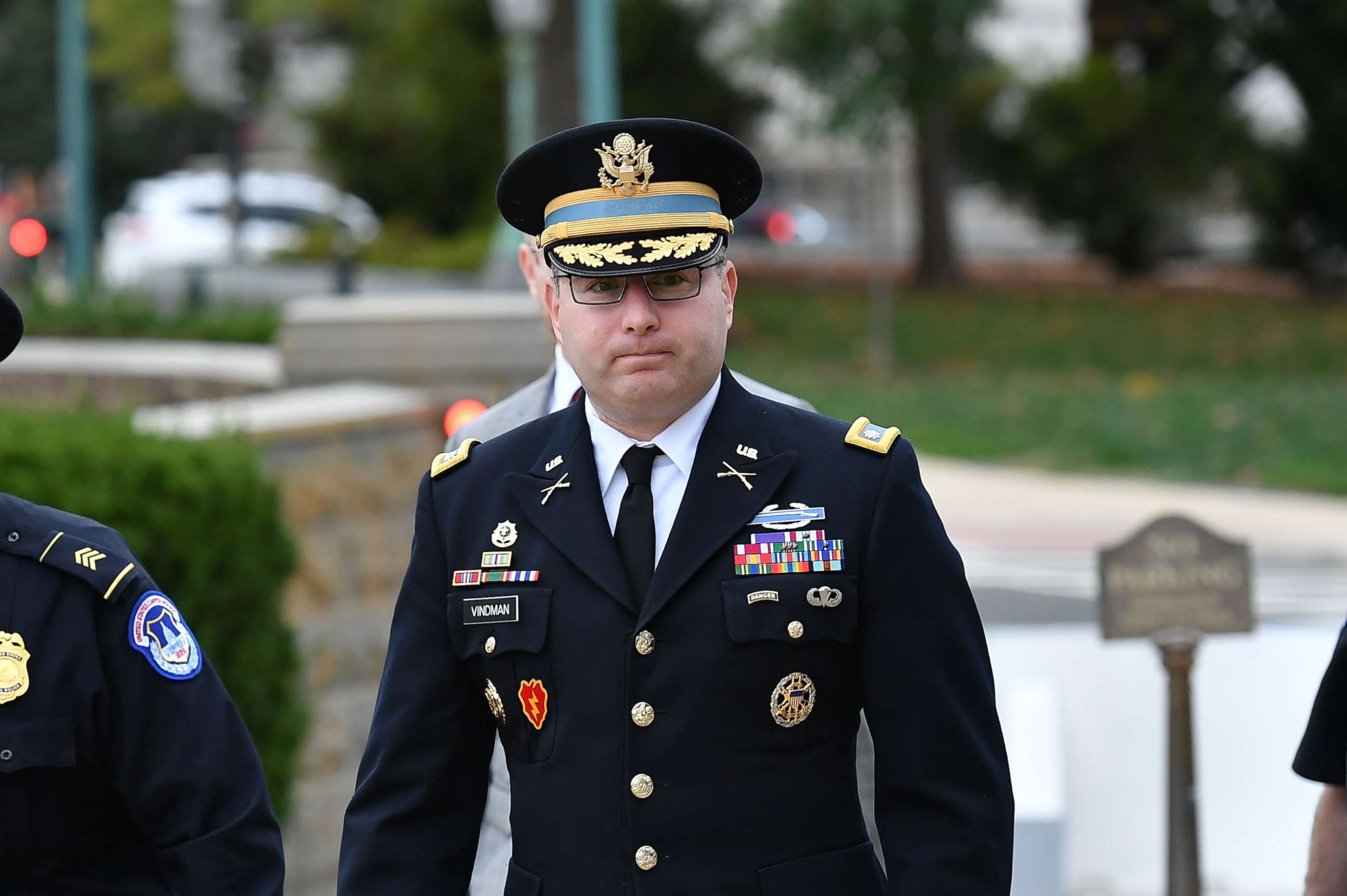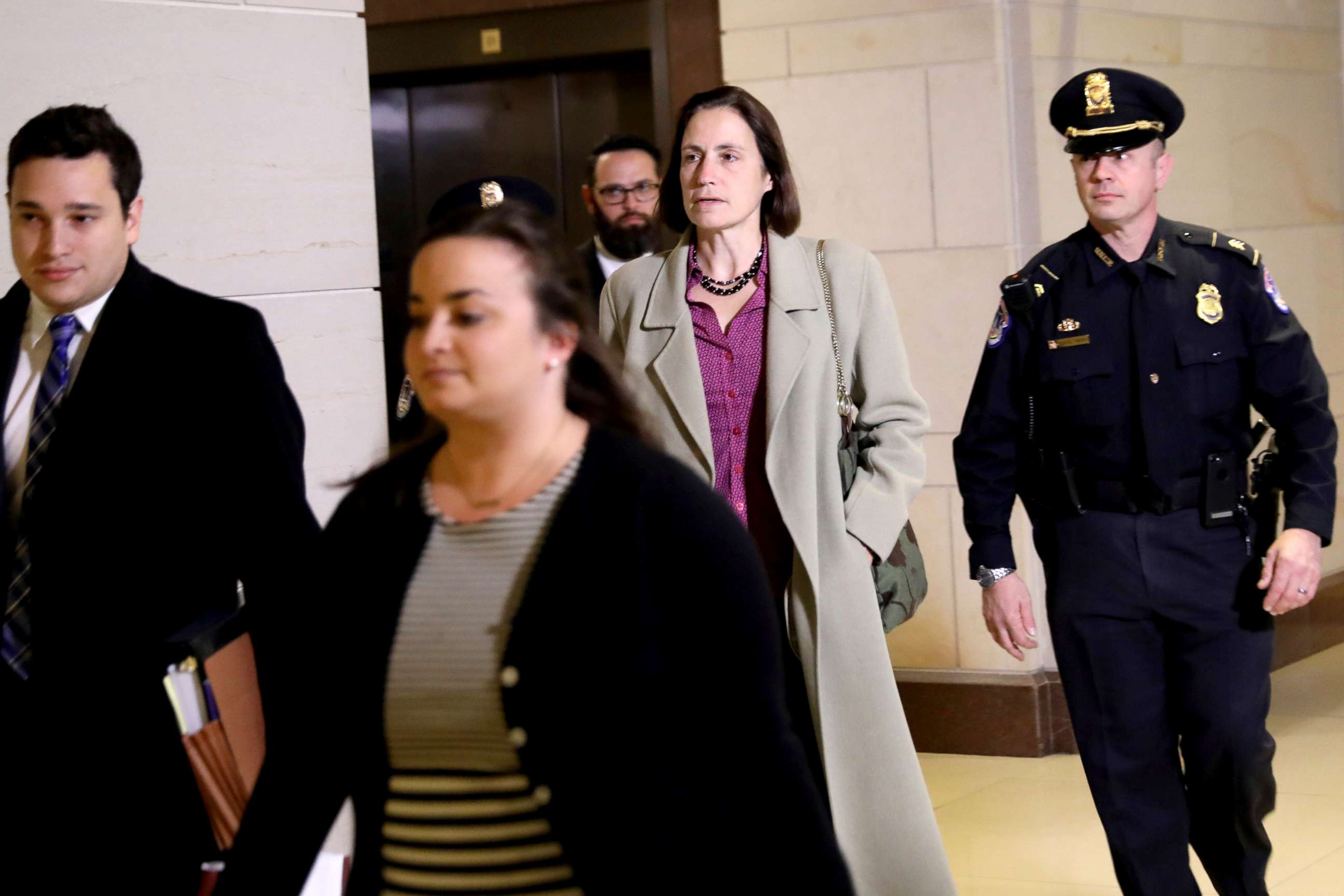2 White House officials testified Mulvaney helped coordinate Ukraine pressure campaign
Transcripts of Army Lt. Col. Alexander Vindman and Fiona Hill were made public.
Acting White House chief of staff Mick Mulvaney helped to coordinate a pressure campaign against Ukraine, two top White House officials said they were told, according to testimony released Friday based on closed-door depositions.
The two officials – Fiona Hill, who has since left the White House after serving as senior director for Europe and Russia, and Army Lt. Col. Alexander Vindman, director of European Affairs at the National Security Council – also testified that they were so alarmed by the quid pro quos being put to Kyiv that they reported their concerns directly to National Security Council Legal Adviser John Eisenberg.
Both Mulvaney and Eisenberg have declined to testify, despite having received subpoenas from Congress.
At the center of the ongoing House impeachment inquiry is an effort by Trump and his personal attorney Rudy Giuliani to get Ukraine to launch an investigation that would have included his 2020 political rival, Joe Biden.

Gordon Sondland, a Trump-appointed ambassador, has testified that he relayed the message to Ukraine that nearly $400 million in military aid was tied to its willingness to announce the probe.
According to the latest transcripts, Sondland said he had Mulvaney’s blessing, which Sondland expressed in a July 10 meeting with Ukrainian officials in which national security adviser John Bolton tried to abruptly cut short.
“Ambassador Sondland blurted out: ‘Well, we have an agreement with the chief of staff for a meeting if these investigations in the energy sector start,” Hill said.
Vindman confirmed her account, saying Sondland said the requirement of an investigation that included the Bidens “had been coordinated with White House Chief of Staff Mr. Mick Mulvaney.”

Vindman also said he thought it was “inappropriate” to call for an investigation by a foreign power into a U.S. citizen.
“The request to investigate the Bidens and his son had nothing to do with national security, and that such investigations were not something that the NSC was going to get involved in or push,” Vindman said.
The testimony also raises serious questions about Eisenberg’s handling of the complaints and whether he tried to act on them.

Vindman says he approached Eisenberg two weeks before Trump’s phone call in which he repeatedly urged the president of Ukraine to investigate his political rivals, warning him of the demands being made.
“I vaguely recall something about: ‘I’ll take a look into it. You know there might not be anything there. We’ll take a look into it,’ something of that nature” said Vindman, describing his conversation with Eisenberg, on July 10.
Vindman said he went back to Eisenberg again within an hour after Trump’s July 25 phone call to Ukraine’s president because he believed it amounted to a “demand” by Trump that a foreign power investigate a U.S. citizen, in this case Biden.
He also testified that he thought Eisenberg made the decision to put a transcript of Trump’s July 25 call into a system intended to restrict distribution.
When asked why distribution would be limited, Vindman said because it “would implicate a partisan play” that could damage U.S.-Ukrainian relations.

Hill said she was so alarmed by the July 10 meeting with top Ukrainian officials that she reported her concerns to then-National Security Adviser John Bolton who demanded she relay the details to Eisenberg, which she testified she did.
Hill said Bolton told her: “You go and tell Eisenberg that I am not part of whatever drug deal Sondland and Mulvaney are cooking up on this, and you go and tell him what you’ve heard and what I’ve said.”
Vindman's testimony can be found here.
Hill's testimony can be read here.
The testimony release comes ahead of the first televised hearings in the impeachment probe next week as Democrats step up the public phase of their investigation.
ABC News' Mike Levine, Lauren Lantry, Laura Romero, Trish Turner, Kathryn Mcquade, Liz Alesse, Avery Miller, Allison Pecorin, Mariam Khan, Sarah Kolinovsky, Katherine Faulders, Soo Rin Kim, Stephanie Ebbs and Sophie Tatum contributed to this report.




